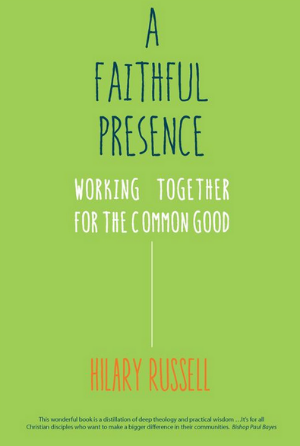A Faithful Presence
Russell's account of the Working Together for the Common Good initiative a generation ago offers a mix of hope and disappointment
 A Faithful Presence - Working Together for the Common Good
A Faithful Presence - Working Together for the Common Good
By Hilary Russell
SCM Press
ISBN 9780334053897
Reviewed by Alec Gilmore
An unusual book which functions at many levels. On one, it is a fairly straightforward historical account documenting what Working Together for the Common Good (T4CG) set out to do and achieved in Liverpool in the 1970-80s under David Sheppard, Derek Warlock and fellow church leaders. The partnership reflecting a rare expression of ecumenism in relation to the local social, political and human problems of the day.
On a second, it is a personal statement by this Liverpudlian author as she reflects on the T4CG 'underpinning themes that have lingered with me' over several decades and 'much informed my experience and thinking'.
On a third, it is a detailed account of those 'underpinning themes' as Liverpool's Church Leaders experimented with closer cooperation to address the specific needs of the unity which led to 'an ecumenism of Kingdom building', as against the more familiar co-operation for church unity. Needless to say, with that agenda, the underpinning themes were very broad and most of them are still with us: equality, housing and homelessness, faith communities, work and pensions, food and rural affairs, the environment and Justice and Peace. You name it . . . and in every case the key was always 'Conversation and Transformation' for the common good, leading to an ecumenism as 'More Together, Less Apart'.
Finally, on a fourth level, we have the fruit of serious research by the author on how things have developed since, mainly in Liverpool but not without an awareness of the wider context.
The fact that lines of demarcation between the levels are not clearly defined doesn't always make for easy reading, but that is probably how it should be because that is how it is in life.
The book (qua book) is fine. The content is a mix of hope and disappointment. Hope because of what the leaders did, the potential they explored and opened up.
Disappointment because it is hard to feel that we have progressed much further since. Optimists will reach for their pens to demonstrate that we have. Pessimists will feel that little progress has been made and some will even feel we have slid backwards.
Readers in both camps would do well to spend some time searching for 'Sheppard, Warlock, et al' in current church leadership. Russell plays all the right notes but the theme music still seems more end of the 20th rather than the beginning of the 21st centurie as we struggle to catch up with where we are now.
Alec Gilmore is a Baptist minister
Baptist Times, 16/12/2016